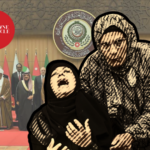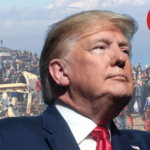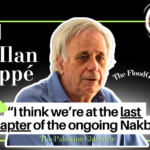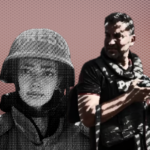Egypt’s Unanswered Question
By Ramzy Baroud
What is happening in Egypt? How is it possible that in a matter of two years a perceived evil can become virtuous? And how could those who shed many tears over the beating to death of Khaled Saeed at the hands of the Egyptian police in June 2010, justify with disheartening ferocity the killing and wounding of thousands of Khaled Saeeds in August 2013?
It gets even stranger. Many Egyptians met a court decision to release former Egyptian dictator Hosni Mubarak from prison with ‘indifference’, reported Al Jazeera on August 23. As media footage has shown, others reacted with utter delight.
There are obviously compelling reasons behind that indifference. Amongst them is the deteriorating security situation in the country, especially following the military coup on July 3, and the very bloody crackdown on anti-coup protests in Rabia Al-Adawiya and al-Nahda squares, among other areas of Cairo and the rest of the country.
But is this enough to devalue Egyptian blood to this extent? And even if the answer is yes, how can one explain the jubilance of Egyptians at the site of their own brethren as they are being killed or beaten to death? No words suffice. No analysis. No historical comparisons.
Reports and footage coming out from Egypt in the last two months have been depressing to say the least. Few had expected that Egypt, whose January 25, 2011 revolt was presented by some as the most inspiring peaceful mass movements in modern history, would suddenly become affiliated with the kind of blood and gore that has been witnessed there recently.
This is not a question of violence, but rather the very political and media culture that made such violence possible in the first place. Leading intellectual and UN human rights envoy Richard Falk spoke of a ‘genocidal climate of opinion’ that swept the country, especially in recent months, “making it almost to be expected that many of the coup supporters among the mass of Egyptians find nothing wrong with the tactics of the security forces since July 3.”
Those who limited the discussion of Egyptian media to freedom of speech and a lack thereof, seemed oblivious to the sinister role it played in the months leading to the coup, and its cheerleading role as thousands of people fell dead and wounded in a matter of hours. Although not comparable in numbers, it was a similar mentality that oversaw the Hutus-affiliated media prior to the mass slaughter of the Tutsis of Rwanda in 1994. What preceded the massacres was one of the greatest acts of media-lead dehumanization of entire groups in decades. The Tutsis were deprived of any characteristics that qualified them as human beings deserving of life. The rest is history.
In Egypt, a similar mentality has ruled. The lies are so brazen, dehumanization so extreme. Bodies piled up in Cairo mosques and morgues unburied for days. This is certainly not what many had in mind when the Egyptian revolution was declared victorious over two years ago.
Why did those who cheered for the revolution turn against it when the outcome of the democratic process failed their expectations? Was it a problem of flexible morality, hyped expectations, or something else?
To make sense of it all, historical references are abound, a disproportionate number of which are made to the French revolution. Mark LeVine cited François-Noël Babeuf, the famed political agitator and revolutionary who was guillotined in May 1797 when he defied those who violated the collective values upon which the French revolution was predicated. A prolific writer, his song “Dying of Hunger, Dying of Cold” became a staple among like-minded troops of the French Revolutionary Army.
LeVine quoted Babeuf’s remarks at his trial before he was executed by the Republican government – the Directory: “I saw that in Paris the simple and uninstructed multitude had actually been led by the enemies of the people into a cordial contempt for the Republic… I said to myself: the Republic is lost, barring some stroke of genius that could save it; surely monarchism will not hesitate to regain its hold upon us… I saw no one who might be disposed to revive the courageous mood of earlier days. And yet, I told myself, the same ferment of zeal and of love for all men still exists.”
It does exist. It must exist. The astounding values of human solidarity and camaraderie that existed in Tahrir two and a half years ago, and the extraordinary will that compelled millions to stand against the military coup, at the risk of losing life, limb and freedom, cannot possibly vanish overnight.
This temporary merger between Egypt’s political elite, military and self-serving intellectuals cannot last. A time will come when most Egyptians will wake up to a haunting reality that they live under a military dictatorship, even if barely hidden behind a civilian façade, and that their lives have not in the least improved, or that the babbling media and numerous intellectuals with questionable academic credentials have duped millions. It will soon be realized that most Egyptians are given one and only choice: life in blissful servitude.
Even if Egypt’s self-proclaimed liberals and socialists are pretending otherwise, it’s a class struggle and will remain as such regardless of the quickly unfolding events. “Egypt has well-ensconced pro-western elite, corrupt, extremely rich, and as events over the past two years prove beyond a doubt, vicious and unprincipled,” wrote Eric Walberg.
Besides, what type of liberals are we discussing here anyway? Writing in Al Jazeera, Larbi Sadiki offers an answer: “Who are these Arab liberals? Who amongst them has one iota of Mill or Locke’s political creativity? They have an obsession with bombing Iran, bashing Islamists, and being bedfellows with the enemies of democracy. It’s not their political rhetoric but their relationship with the generals of security forces and intelligence services that is cause for most concern. Instead of learning about constitutionalism or putting together theories about legal and democratic governance, they unfortunately seek satiation of their hedonism.”
The fight for Egypt’s future is not over. Not even the most optimistic can find a cause for sanguinity when bullets are flying that are aiming for heads and hearts. But as bloody as the last few weeks in Egypt have been, a sense of clarity finally prevailed. The Jan 25 revolt, as inspiring as it was, left numerous questions unanswered, and presented the military with the temporary opportunity to break away from the Mubaraks and re-brand itself as the protector of the nation. But real equality and democracy proved too much for the military and the layers of corrupt political and economic elites it represents. Now, the rosy image of a peaceful revolution guided by its military to achieve a better tomorrow is over: the masks have all been lifted and the reality is much, much uglier than previously thought. Egypt’s real struggle for equality, freedom and political definition is just starting.
– Ramzy Baroud (www.ramzybaroud.net) is an internationally-syndicated columnist and the editor of PalestineChronicle.com. His latest book is: My Father was A Freedom Fighter: Gaza’s Untold Story (Pluto Press).



































0 Comments